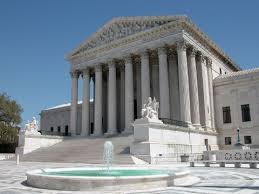 Donna Gratehouse has done an admirable job of pointing out the fraud behind the
Donna Gratehouse has done an admirable job of pointing out the fraud behind the
Top Two Primary ballot measure. I have posted several posts over the past year or so on the political science research which demonstrates that the Top Two Primary (jungle primary) fails to deliver what its proponents promise: higher voter turnout and more moderate (centrist) candidates.
Only certain media villagers and pundits in Arizona — (cough!) The Republic! — love this damn fool idea because they are dumber than dirt when it comes to political science.
If you really want to increase voter participation there are two things Arizona could do today that would immediately increase voter participation: universal (automatic) voter registration, and universal balloting by mail (vote by mail). Of course, our Tea-Publican overlords at the Capitol oppose these common sense solutions because higher voter turnout and voter participation means more voters opposed to their far-right views. Their opposition to these common sense measures is a form of voter suppression.



